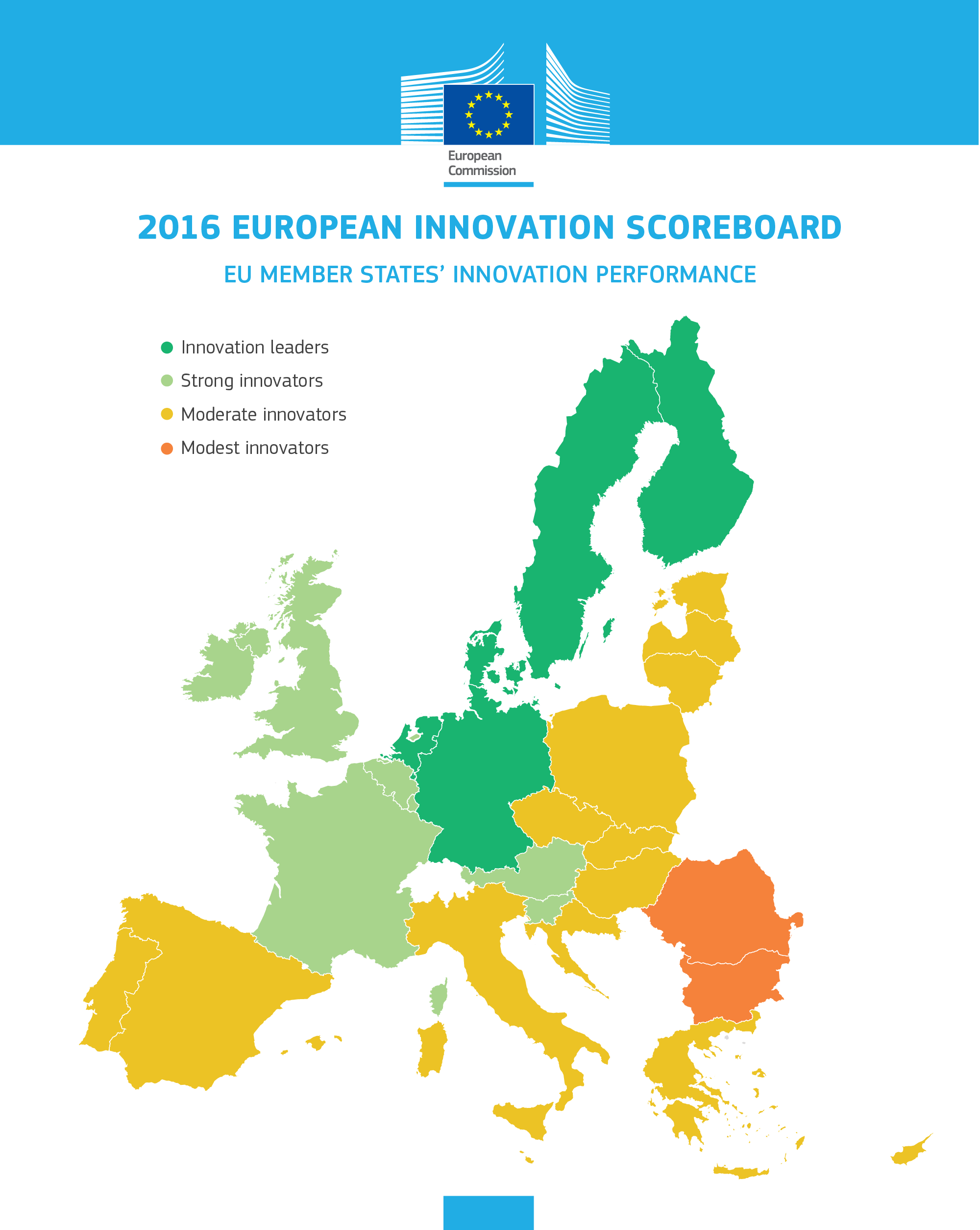
As for the regions, obviously the most innovative are in countries that top the ranking for member states. For example, the regions of Stockholm and Östra Mellansverige in Sweden, while in Denmark it is Hovedstaden and Sjaelland. Outside of the most innovative states, however, there are also regions that stand out like Piedmont and Friuli-Venezia Giulia in Italy, the Basque Country in Spain or the region of Bratislava in Slovakia.


As for Catalonia, the study ranks it with "moderate innovators" and points out that its level of innovation has fallen by 7% compared with two years ago. Its strengths in comparison with the EU as a whole are in the number of higher education graduates, the employment rate in the intensive and knowledge industries and in the export of mid to high level technology. On the other hand, the Catalan weaknesses are a lack of investment in R&D, of cooperation between innovative SMEs and of innovation in marketing and organisation on behalf of companies.
Referring to these data, the European Commissioner for Internal Market, Industry, Entrepreneurship and SMEs, Elżbieta Bieńkowska, stated: "I want Europe to be a place in which SMEs and emerging innovative companies prosper, and for these to be increasingly inside the single market. To make this possible, a great coordinated effort is required. On the EU scale, we have to simplify the regulation of VAT, adapt the rules on bankruptcy, ease access to information on regulatory requirements and establish a clearer framework in the area of intellectual and industrial property that is more favourable to SMEs. We also need to continue adapting the Single Market to make space for innovative services, such as those of the sharing economy."
In turn, the European Commissioner for Research, Innovation and Science, Carlos Moedas, said that "the leading countries and regions are giving support to innovation through a whole range of political initiatives, which go from investment in education and flexible working conditions to public administration that values entrepreneurship and innovation." The Commission is also making a contribution with the promotion of innovation in different political areas." And he added: "We want, however, to go further and that is why we are also improving access to finding through the Investment Plan for Europe, worth 315 billion euros, and the union of capital markets, and the European Innovation Council that is being created."

Meanwhile, the European Commissioner for Regional Policy, Corina Cretu, pointed out that "intelligent strategic specialisations help the Member States and regions to make the most of their assets in Research and Development and to find opportunities for cooperation between companies and the academic world. They thus orient innovative investment that receives the support of the EU's investment fund to the long-term and, when possible, other sources of EU funding. In all, it greatly contributes to the transformation of Europe into an economy based on knowledge."